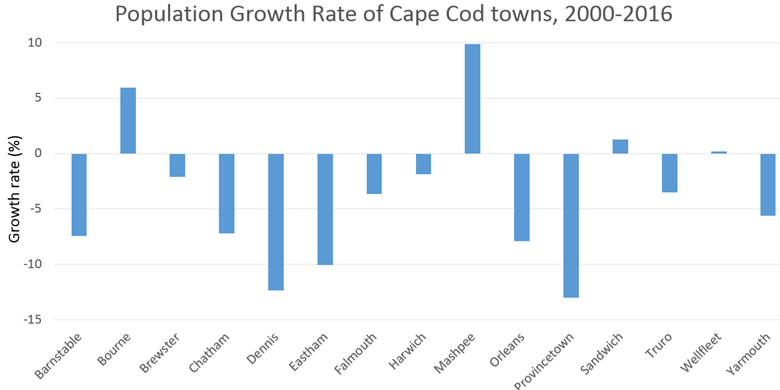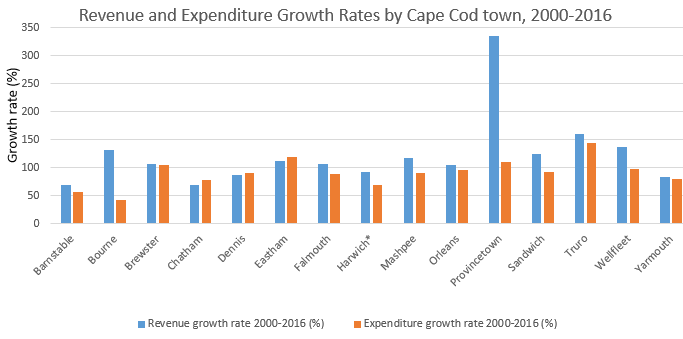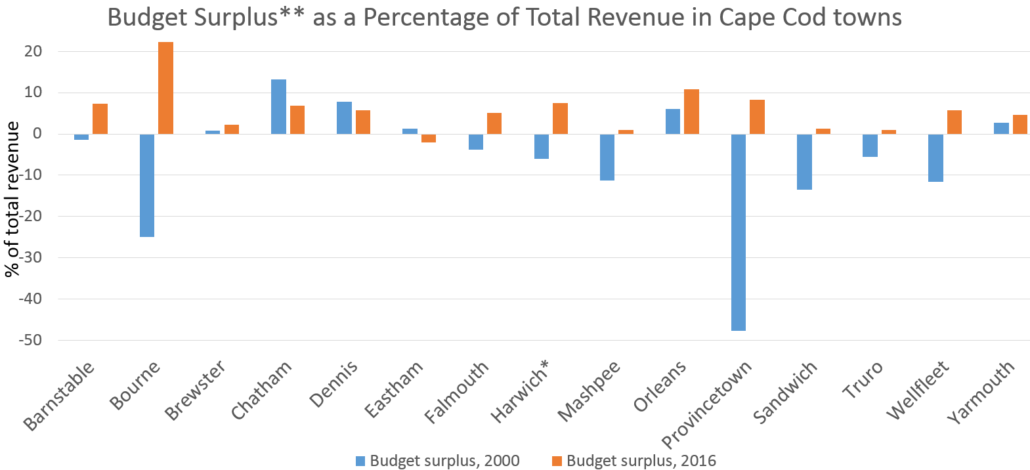Can Cape Cod’s economy rely on tourism forever?
Cape Cod’s character has long been dependent on the season. As the leaves change colors in October and November, bustling summer colonies quickly transform into sleepy New England towns. This dichotomy has heightened in recent decades, and depopulation in the region has raised concerns about the economic sustainability of the Cape and the well-being of its all-season residents.
Barnstable County’s year-round population has generally declined since around 2003, stabilizing only very recently. Even then, there’s reason to believe that future population trends on the Cape (and throughout Massachusetts) are highly dependent on economic conditions. This insight may prove daunting for towns that are heavily reliant on a single industry: tourism, in the Cape’s case.
Furthermore, aging populations have the potential to strain fiscal resources, especially healthcare. Some towns are more at-risk than others in this regard. Orleans, for example, has a median age of 59. As a steady flow of retirees has been attracted to the Cape, the growth of young families has not kept pace, as evidenced by the declining proportion of school-aged children compared to the population as a whole.
Figure 1

According to Pioneer Institute’s MassAnalysis database, almost all of Cape Cod’s towns have lost population since the 2000 Census, with notable exceptions among those that are relatively close to Boston (Figure 1). However, Cape Cod’s depopulation has yet to erode its tax base. Revenue growth outpaced expenditure growth in all but three towns between 2000 and 2016 (Figure 2). Many towns on the Cape have turned budget deficits into sizable surpluses during the same period, including the regional commuter hub of Barnstable (Figure 3).Only Eastham was still running a budget deficit in 2016.
Figure 2

Figure 3

*Harwich’s revenue and expenditure data is only available through 2015. The 2015 data is used in place of that of 2016.
**Negative budget surplus is equivalent to a budget deficit.
Essentially, Cape Cod makes up for the losses of its year-round residents with an expansion of seasonal housing. In the long term, this may limit both the size of the labor market and the accessibility of housing to lower- and middle-income families. However, the narrative that Cape Cod’s recent depopulation is adversely affecting the economy is not currently supported by the data. Long term demographic concerns still need to be addressed, and the relatively healthy state of local government finances on the Cape will allow for expansions of health care and other services.
For more information on demographic and economic trends in specific Massachusetts municipalities, explore the data yourself at http://www.massanalysis.com/municipality/.
Andrew Mikula is the Roger Perry Government Transparency intern at Pioneer Institute. He studies economics at Bates College.



